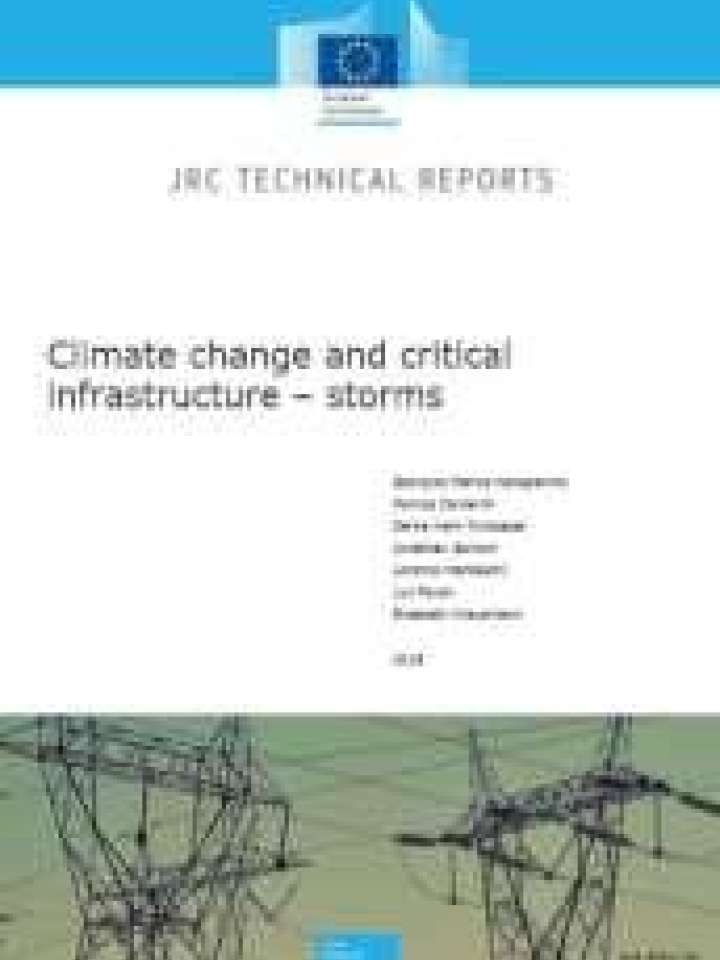Climate change and critical infrastructure - storms
This study attempts to elucidate the vulnerability of critical energy infrastructure to storms, with emphasis placed on the power grid in the European Union and Member States. First, it discusses the impact of storms on the power grid and outlines how certain characteristics of this type of hazard affect the resilience of the power grid using forensic analysis. Second, the study presents a methodology to investigate the impact of climate change on the risk posed by storms to the power grid infrastructure. The approach combines a future projection of the recurrence interval of selected storm scenarios and the assessment of the estimated losses incurred to critical infrastructure and those resulting from the disruption of daily economic activity.
A case study was conducted to demonstrate the methodology in a large urban area in Western Europe. The scope of this study aims at demonstrating the feasibility of the methodology and inductively drawing preliminary conclusions regarding the impact of storms on critical infrastructure given climate change conditions. It is not intended to supplement, replace or challenge existing risk assessment and management plans prepared by Member States.
This is a two-part study. Chapter 2 is the first part, which is intended to improve the understanding of power grid’s resilience to storms. It is based on the analysis of past storm occurrences and their impact on the power grid. Its purpose is to inform policy-making and strategic and disaster risk management planning in the European Union and Member States. Additionally, however, this analysis serves as a foundation of the risk assessment methodology that follows. Specifically, Chapter 3 is the second part of this study and outlines a methodology for the estimation of the change in the risk level of failure or disruption of the power grid resulting from the impact of climate change on the frequency and severity of storms. Risk is quantified in economic terms to support cost-benefit analyses.
Explore further
